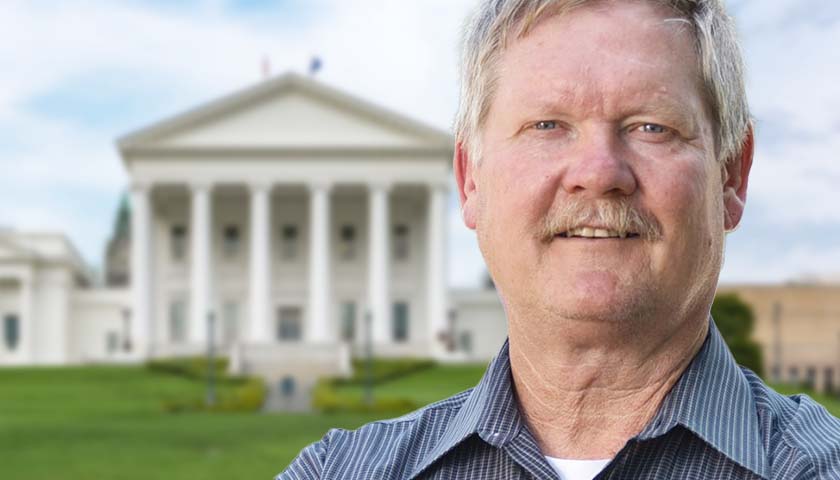The House of Delegates passed a bill to fund a group violence intervention program based on the “Operation Ceasefire” projects implemented in Boston. That’s been a goal of now-Speaker Todd Gilbert (R-Shenandoah) since 2019, and Governor Glenn Youngkin promised it during his campaign. Delegate Tony Wilt (R-Rockingham) introduced HB 833; the version that passed out of the House on Monday would create a grant fund managed by the attorney general to fund violent crime reduction strategies, training and equipment for law enforcement, grants to law enforcement, and other organizations engaged in group violence intervention.
“Project Ceasefire is a tried-and-true method across our nation in many cities that are doing just this, Mr. Speaker,” Wilt said on the floor of the House during Friday debate. “It’s kind of a three-tiered approach through enforcement, deterrence in relation building, and relationships in our communities, with the goal of offering those caught up in violent criminal acts and activities to be able to exit and get a better path forward in life.”
An earlier version of the bill, similar to Gilbert’s 2019 bill, would have created a Group Violence Intervention Board to coordinate with agencies and community organizations, would have required annual reports, served as a clearinghouse for data, and provided grant funding through the Department of Criminal Justice Services (DCJS). Democrats have a similar bill, HB 825, introduced by Delegate Marcia “Cia” Price (D-Newport News). That bill would create a center under DCJS to study firearm intervention and prevention best practices, and to provide data. HB 825 would also have provided grant funding, overseen by DCJS.
Democrats criticized the changes to HB 833.
“This takes this whole project away from DCJS, Department of Criminal Justice Services, which is a multidisciplinary body that can work and coordinate with all kinds of agencies including police, local law enforcement, has relationships with DBHDS [Department of Behavioral Health and Developmental Services] that handle the mental health side of it, and coordinate with the Department of Veterans Services because we all know that veterans in communities in particular are affected by gun violence and violence,” Delegate Marcus Simon (D-Fairfax) said. “And it pulls that all out and moves it over to the attorney general’s office, right? The same attorney general’s office, by the way, who I pointed out has watered down our efforts on human trafficking, but that’s sort of beside the point. This is another sort of watered-down effort.”
In his reply, Delegate Rob Bell (R-Albemarle) described Project Ceasefire as implemented in Boston. Authorities identified a small portion of the population who were likely to be involved in a homicide. Then, the police and community leaders would meet with those people and offer them support finding housing, counseling, and other resources to change their path, while at the same time highlighting ramped-up law enforcement.
Bell said law enforcement would say in the meetings, “We’re not going to this sort of accidentally. That’s the probation office. Here’s the police. Here’s the prosecutor. We even have the Feds over in the corner. And we will use all of our ability to take you off the street because we are legitimately concerned that by the end of the year if we don’t do that, you will either have killed someone or be killed, or both.”
On Monday, Price said the earlier version of HB 833 was a start but went on to criticize the changes to the stripped-down version the House was considering.
“The current bill language is not Operation Ceasefire. It takes one silo of the entire program and beefs it up. It is no longer comprehensive, community-based, an initiative as it once began,” Price said. “We don’t start at prevention. We don’t really start in intervention. We start at enforcement. And this becomes a bill of mass incarceration.”
Wilt replied, “I’m happy that the bill has been reduced from three pages down to a page and a half, because that shows that we’re going to streamline the process and we’re going to get our efforts where they need to be in a lot more timely manner.”
“The money is going to, again, going to go directly to our communities. It’s not going to go into forming boards and commissions and all those things that are going to talk about this, collecting data,” he said. “We have data that shows where our communities are in dire need of answers. So, that money is going to be spent wisely, and it’s going to go right to the heart, where the issue is.”
The bill passed with some bipartisan support, 59 to 40. It now heads to the Democrat-controlled Senate.
Youngkin and Gilbert celebrated passage of the bill in separate press releases.
“Today’s successful vote is the culmination of a multi-year effort to bring proven methods of reducing violence to our communities,” Gilbert said. “House Bill 833, better known as Project Ceasefire, has one goal – stop homicides by identifying individuals who cause violence in their communities and working with them to change their lives.”
Youngkin said, “I ran for governor on the promise to keep our streets safe. This bill helps us support our law enforcement heroes by giving them the tools to work with community leaders to help those most affected by violence.”
– – –
Eric Burk is a reporter at The Virginia Star and The Star News Network. Email tips to [email protected].
Photo “Tony Wilt” by Tony Wilt. Background Photo “Virginia State Capitol” by Martin Kraft. CC BY-SA 3.0.








